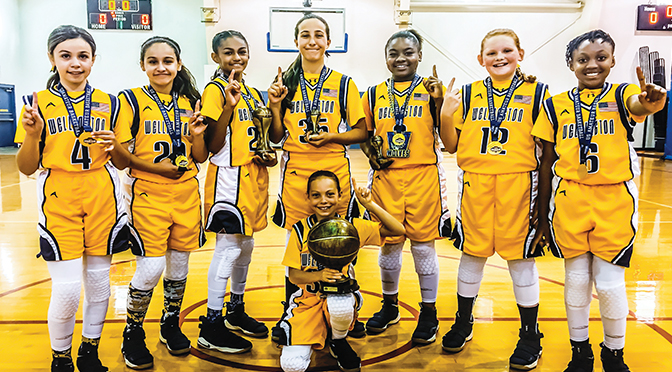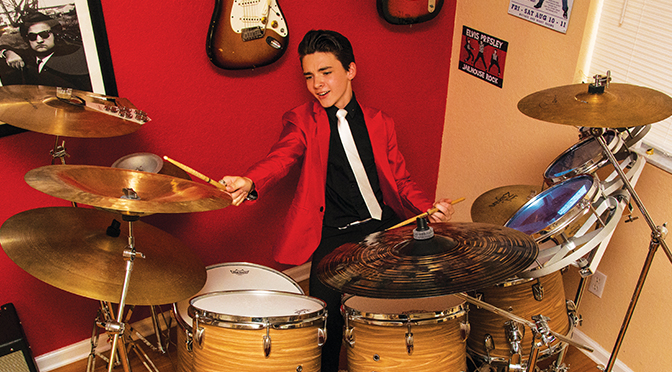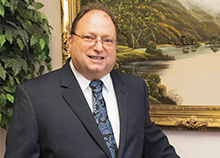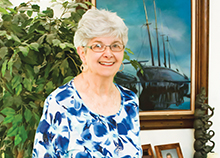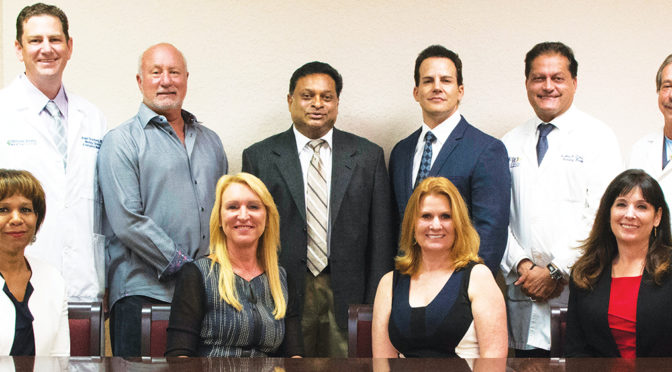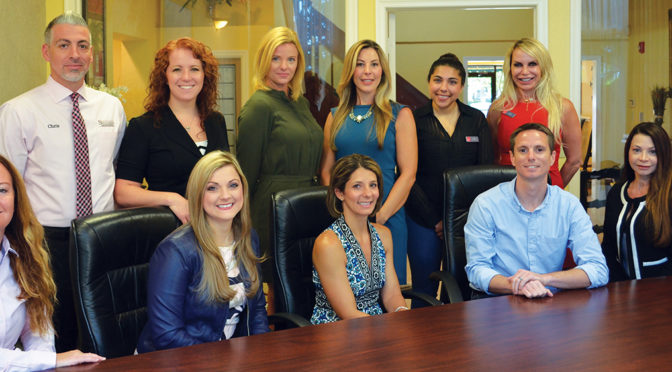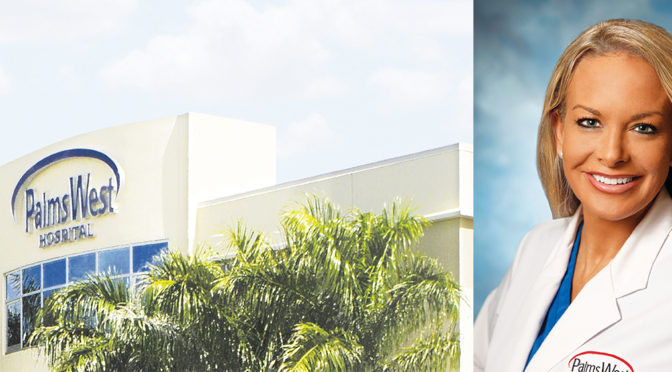Information Technology Among Choice Programs At Wellington Middle Schools
The School District of Palm Beach County is an A-rated district committed to providing students a world-class education — and for more than 50,000 students, that means participating in the impressive array of choice and career programs.
Throughout their school careers, students have the opportunity to immerse themselves in relevant career-oriented classes, custom-tailoring their education to their future career paths in the performing and visual arts, STEM (science, technology, engineering and math) and STEAM (science, technology, engineering, art and math), the International Baccalaureate program, JROTC, dual language and more.
The school district features a 90 percent graduation rate, and that rate approaches nearly 100 percent for students in choice programs. Students self-select the programs that interest them, with eligibility criteria that may be based on grades and a lottery process. Enrollees in the programs must maintain a minimum grade point average in order to remain with the track.
Several choice academies are located in Wellington’s middle schools. All three — Emerald Cove, Polo Park and Wellington Landings — offer the popular pre-information technology program. Wellington Landings also offers a fine arts choice program, while Polo Park also features pre-engineering.
Students enrolled in the pre-information technology program are exposed to a variety of different IT and computer-science-related concepts in grades six through eight, including: project management and job-readiness skills, computers and logic, web development, design, HTML coding, CSS and JavaScript, cloud computing and social networking.
The pre-information technology programs also allow for middle school students to earn industry certifications. Approximately 90 percent of district middle school students taking one of two exams earn the industry certification.
Students are able to distinguish themselves by successfully obtaining these industry certifications that can be added to their resume for work, college applications and career readiness, explained Dr. Jeraline Johnson, director of choice and career options programs for the school district.
The academies provide a variety of hands-on learning experiences that meet student interests and engage them in preparation for college and career with opportunities for job shadowing, internships, project-based learning and on-the-job training. Students can also participate in various clubs and organizations that provide even more hands-on activities and competition, Johnson added.
Johnson said that the benefits of participation in the program courses include improved academic achievement and increased scholarship opportunities; higher attendance and graduation rates; greater parental and community involvement; specialized teaching staff providing themed-based education; and advanced technical training for career readiness and success.
Sandra Wesson, manager of choice programs for the school district, said that succeeding in a choice program is often a marker for future success.
“Students in Palm Beach County have equitable opportunities to participate in one of more than 300 choice and career programs that meet their interests, best prepare them for making informed decisions leading to future success in both college and career, and encourage them to be contributing members of their communities,” she said.
About 90 students participate in the pre-information technology choice program at Emerald Cove Middle School each semester, Principal Dr. Eugina Smith Feaman said.
“In the program, students matriculate through three pre-IT elective classes,” Feaman said. “This includes Information & Communication Technology Essentials in sixth grade, which introduces students to computer science as a vehicle for problem solving, communication and personal expression. It focuses on the visible aspects of computing and computer science, and encourages students to see where computer science exists around them and how they can engage with it as a tool for exploration and expression.”
In the seventh grade, the students learn the Fundamentals of Web Design and Software, and in eighth grade, they take the Emerging Technologies Course, which prepares them for Computer for College and Careers (CCC) course taught on the high school level, Feaman added.
Students learn digital literacy, which includes proficiency with computers in the exploration and utilization of databases, the internet, spreadsheets, presentations, applications, management of personal information and e-mail, word processing, document manipulation, and the integration of these programs using software that meets industry standards.
At Emerald Cove, completing the program often leads the students to matriculate into Palm Beach Central High School’s Web & Digital Design Academy, Feaman explained.
Craig Corsentino is in charge of the two choice programs at Polo Park Middle School. The pre-information technology and the pre-engineering programs each have about 150 students.
“We chose to do these two programs because we want our students to be prepared for the future. Information technology and engineering careers are currently expanding and are expected to continue to do so in the next 20 years,” Corsentino said. “The pre-information technology program is a computer-based program where students will learn how to code, work with apps and learn about the different careers and technologies that will exist in the future.”
The pre-engineering program, meanwhile, is a hands-on program that allows students to explore several different aspects of engineering, from aerospace to science in technology.
“Students love both programs and enjoy utilizing the different technologies that Polo Park has to offer, from our 3-D printer to our drones, robots and much more,” Corsentino said. “Many of our students go on to succeed at Palm Beach Central, Wellington, Suncoast and many of the other fantastic high schools that our district has to offer.”
Wellington Landings Middle School Principal Blake Bennett has found that the pre-information technology students are very engaged in the subject matter.
“Students love the classes and are excited to earn industry certifications,” she said. “We also add in pieces like Photoshop, robotics, etc., and the students love learning those tools and applications.”
Bennett is also proud that her school offers more high school credit classes than any other middle school in the county.
“The pre-information technology academy offers an innovative learning environment focused on computers, technology and communications over the course of three years,” Bennett said. “The sixth-grade year is a semester course designed to help students develop speed and accuracy by learning the touch operation of alphanumeric/keyboard characters. Students will also get a basic understanding of word processing using the Microsoft Word software program.”
Bennett continued that the seventh-grade class is a full-year course with an emphasis on web design. Students in this class have the opportunity to earn the CIW Site Design Associate certification. “In the eighth grade, academy students will take a high school credit, year-long course that teaches foundational knowledge of web technology used throughout the business world,” Bennett said.
The majority of graduates have indicated that the school district’s choice programs are positive experiences that prepared them for their future goals, with many indicating that they plan to pursue employment or post-secondary studies directly related to the area of study they were enrolled in.
For additional information about these programs, visit www.palmbeachschools.org/choiceprograms or contact the schools individually.


